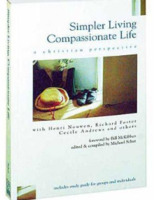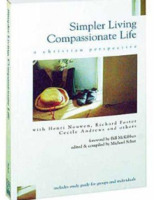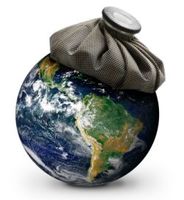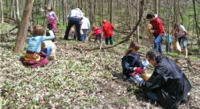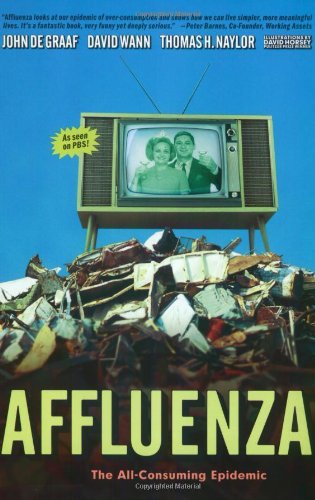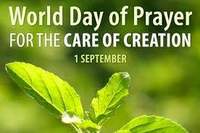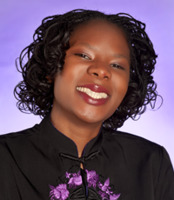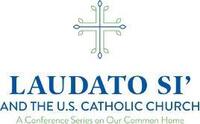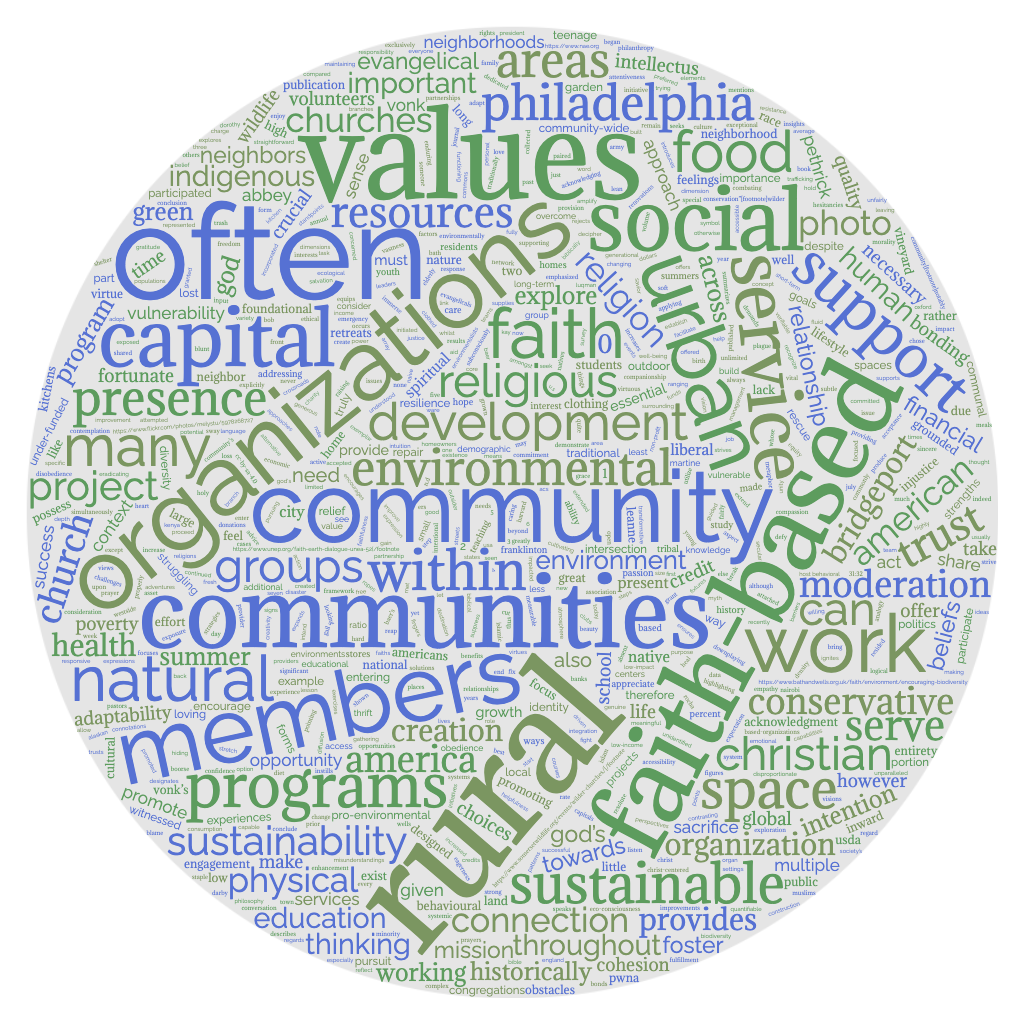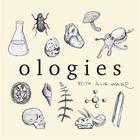Search
146 items
-
"Theology in Support of Simplicity and Eco-Justice" in Simpler Living, Compassionate Life
Simpler Living, Compassionate Life, is a book from Earth Ministries that consists of both essays and community guides regarding humanity’s relationship to our earthly home. This section, "Theology in Support of Simplicity and Eco-Justice," captures the Biblical and faith inspired foundation of the movement toward simplicity. It encourages those who are participants in a culture of over-consumption to reconsider their lifestyles and reverse the damage done to the gift that we have received. -
"Social Structures and the Politics of Simplicity" in Simpler Living, Compassionate Life
Simpler Living, Compassionate Life, is a book from Earth Ministries that consists of both essays and community guides regarding humanity’s relationship to our earthly home. This section, "Social Structures and the Politics of Simplicity," looks at systems in society that perpetuate and encourage over-consumption. From theology to capitalism to advertising, authors call out ways in which we have built our world for destruction. It focuses not only on personal choices, but the necessity of engaged politics and policy. For the full version Moriah Reichert's review of this section of the book, visit the link below. -
Justice for Each Generation
Justice for Each Generation started with the landmark case, Juliana v. U.S. Twenty-one youth had filed a lawsuit against the United States government for its role in causing climate change and violating their right to life, liberty, and property, while also failing to protect essential public resources. They are calling for sermons from youth and adults of all faiths as a collective statement that sends a signal to the rest of society. -
Evangelical Environmental Network: The Last Straw
Up to 12 billion tons of plastic trash end up in God’s oceans. Evangelical Environmental Network (EEN) maintains that trash is an affront to the glory of God. Trash eventually ends up someplace, and that someplace belongs to God. In order to put a stop to this waste, EEN has created The Last Straw Campaign Pledge. This pledge urges individuals to decline straws at restaurants and other food/beverage establishments, and avoid purchasing for home use. Additional steps of advocacy that one can take include asking local restaurants to only provide straws when customers request them and asking elected officials at the local and state levels to phase out the use of plastic straws, and single-use plastic. -
Season of Creation Week 1: A Culture of Relationships That Heals our Throwaway Culture
For each week of the Season of Creation, the World Council of Churches offers a resource for celebrating creation. The first week focuses on the throwaway culture that society has created and urges individuals to instead focus on just and sustainable practices. The document includes a call to prayer, a scripture reading, a hymn, and a responsive reflection. -
Columbus Catholic School becomes Designated GreenSpot School
The GreenSpot School designation indicates that a school has taken initiatives to educate their students and staff about sustainability, water issues, conserving energy, reducing waste, and green transportation. St. Mary School Catholic school has become the first in Columbus to earn this designation. They have implemented a recycling program, local garden, and composting, which qualified them to become a GreenSpot School. They have created a short video of students discussing their engagement and staff discussing the impact of becoming a GreenSpot School. -
The Necessity of Environmental Concern
A group of 20 Muslim youths worked to clean up an area in Columbus as a community service event. The event helped one Columbus-area Muslim leader realize that demonstrating concern for the environment is not a luxury, but a necessity. Many people prioritize a number of worldly things ahead of environmental care. Increasingly, faith groups are demonstrating that environmental concern and care needs urgent attention throughout the world. -
Giving Back to the Community on Earth Day 2016
This year on April 22 for Earth Day, many organizations are working in conjunction with Metro Parks Officials to clean up five parks within the Columbus area. Leaders hope to encourage involvement of congregations within local communities. A day of services can be a great teaching moment as well as an opportunity to give back. -
Earth Day statement from ELCA presiding bishop
The Reverend Elizabeth A. Eaton, Presiding Bishop of the Evangelical Lutheran Church in America (ELCA), issued an Earth Day statement on behalf of the ELCA. A salient excerpt from the statement is shown below:
"The effects of the warming climate are felt in nearly every corner of the globe. These include increased migration, food insecurity due to changing agricultural landscapes, national security issues and health problems. As bad as it is for all creation, the most vulnerable people around the world are suffering the most. Yet they have contributed the least and, as noted in the United Nation's 2030 Agenda for Sustainable Development,[iii] are ill equipped to adapt to or mitigate the effects of a changing climate to build resilient communities." -
Climate Change
The Presbyterian Church has put forth this video on care for creation, emphasizing that Christ has called us to go out into the world to care for creation and our fellow humans, especially the poor. The Union of Concerned Scientists has identified food, transportation, and energy as three key areas of focus to help stem climate change Congregations can help by implementing energy saving techniques, participate in recycling and composting waste, teaching children to grow food, and incorporating salient creation care concepts within educational settings. -
Hazardous Waste, Race, and the Environment
This statement was approved by the 207th General Assembly Presbyterian Church (U.S.A.), 1995. The predominant theme focuses on the impact that hazardous waste has on individuals who are suffering from poverty and minority groups. The final section provides suggestions for taking action. -
Climate Change
The World Council of Churches calls individuals to modify their consumer lifestyle for the greater good - to improve shared environmental conditions for all and with less negative impact among the poor. This excerpt provides a sense of urgency to act to reverse the threat of climate change:
"The urgency of the threat of climate change requires our generation to take immediate action and go beyond simple declarations and statements. New alternative models of life are called for. We challenge all people to move towards a style of life that derives its quality from the attentive enjoyment of nature and human relationships, from mutual care, dependence, trust and solidarity instead of the illusions of individual autonomy and material wealth, from spirituality and feelings of community, connectedness and intimacy instead of one-dimensional self-centredness. We draw strength from insights gained from the rich, community- oriented and simple lifestyles of indigenous and other marginalized communities. We are conscious of the significant contribution these communities, with their low carbon economies, deliver to the stabilization of the climate. We recommend the creation of 'just, participatory, sustainable and sustaining communities' for mutual support and call upon the churches and authorities to join them on this journey with reflection and practical support." -
Economic globalization and ecology
In this message, the World Council of Churches (WCC) focuses on how economic globalization affects the environment, with a specific focus on economic justice. The following excerpt provides a succinct summary of what WCC strives to achieve in this area:
"In this context of growing inequality, concentration of power, social exclusion and ecological destruction, people are longing for life with dignity in just and sustainable communities. If that goal is to be attained we need to work for equity as basic fairness that also extends to other life forms, respect for diversity as recognition of the complementary of, for example, cultures species, religious traditions, accountability as a way of being responsible towards one another and Earth itself, participation as the optimal inclusion of all involved, sufficiency as a commitment to meet the basic needs of all, and subsidiarity as determining the most appropriate level for decision-making, supporting the downwards distribution of power." -
Affluenza Documentary (1997)
A one-hour PBS documentary which analogizes materialism and consumption to an epidemic. The term 'affluenza' is a combination of 'affluence' and 'influenza.' This an educational and socially critical piece that discusses the harmful affects of overconsumption, and provides ways to 'treat' it. -
Resources for Affluenza
This is a PBS website dedicated to providing information and resources on overconsumption. It also provides a quiz to asses your consumption quotient, and tips for reducing consumptive behaviors. Lastly, this website has a Teacher's Guide for grades 5-12. This was created in relation to the PBS documentary, Affluenza. -
Sustainable Weddings in Columbus
Weddings are typically large events to celebrate the union of two people. Regardless of how beautiful the celebration is, weddings can still generate a lot of waste. In fact, the average wedding can generate 500 pounds of trash. Recently, there has been a movement to have local sustainable weddings that cut environmental impacts significantly. -
Laudato Si’ in Columbus: Bishop Campbell Regales OSU Students with Historical Overview of Catholic Tradition
Bishop Campbell spoke to OSU students about Laudato Si', specifically regarding how Catholic tradition develops the context for it.
"Bishop Campbell highlighted four themes in his talk, including how Catholicism has considered nature for 2,000 years, a Catholic imagination of nature, historical trends of alienation from nature in the Western world, and a discussion of how sin – light and shadow of the world together – plays a role in our ecological situation."
Please click on the link below to view the entire article. -
Tomorrow (Sept. 1) is World Day of Prayer for the Care of Creation: Pope Francis calls on believers and unbelievers to care for our common home
Thursday, September 1, 2016, has been declared a shared World Day of Prayer for the Care of Creation by Catholic and Orthodox Christian communities. This year, Pope Francis issued a video invitation to prayer in which he calls believers and unbelievers alike to work together to care for our common home. In August of 2015, the pope issued a letter
(https://w2.vatican.va/content/francesco/en/letters/2015/documents/papa-francesco_20150806_lettera-giornata-cura-creato.html) declaring Sept. 1 as an annual day of prayer for the care of creation, joining the Orthodox Church, which has been doing so since 1989. Citizens are urged to pray and join a local prayer service, or if no local service is offered, representatives from Catholic, Protestant, Orthodox and Episcopalian churches will offer an online prayer service (https://seasonofcreation.org/2016/08/25/sept-1-online-prayer-service/) at 8am US EDT. -
Profile: Melanie Harris
Dr. Melanie L. Harris is Associate Professor of Religion at Texas Christian University in Fort Worth, TX . There, she teaches and conducts research in the areas of Religious Social Ethics, African American Religion and Environmental Justice. She is a GreenFaith Fellow and co-director of Earth Honoring Faith with Ghost Ranch Education and Conference Center. Dr. Harris is currently a member of the Board of Directors of KERATV/Radio in Dallas and facilitates contemplative retreats as a licensed Spiritual Director. She is the author of Gifts of Virtue: Alice Walker and Womanist Ethics (Palgrave), as well as coeditor of the volume Faith, Feminism, and Scholarship: The Next Generation (Palgrave) and editor of Ecowomanism: Earth Honoring Faiths (Brill).
Along with Dr. Jennifer Harvey, Dr. Harris conducts workshops about racial justice, womanist ethics and environmental justice. She has presented to audiences in the AME, United Church of Christ, and Baptist church traditions. -
Laudato Si' and the U.S. Catholic Church Recordings
"The 2023 Laudato Si’ and the U.S. Catholic Church (June 14-July 27, 2023) national conference, is part of a biennial conference series co-sponsored by Creighton University and Catholic Climate Covenant to equip and inspire Catholics to more deeply integrate Laudato Si’ and its creation care teachings into the U.S. Church. The purpose of this year's conference is to encourage a greater understanding of the Laudato Si’ Action Platform’s seven goals – Response to the Cry of the Poor, Ecological Economics, Adoption of Sustainable Lifestyle, Ecological Education, Ecological Spirituality, Community Resilience and Empowerment, and Response to the Cry of the Earth – and encourage Catholic individuals and groups to enroll in the Platform, providing them with a clearer path for accomplishing each of the goals through speaker presentations." -
Religious Groups Combatting Rising Sea Levels in Louisiana
Donald and Theresa Dardar have made it their mission to save the the susceptible coasts of Louisiana from rising sea levels due to climate change. Joining forces with the local Presbyterian church, Donald and Theresa have preserved sacred mounds, refilled oil field canals, and have built elevated greenhouses. Numerous faith groups in Louisiana have prioritized saving the environment as impoverished people experience heightened effects of climate change. Preserving the community around these faith groups drives individuals to maintain the unique and celebrated environment of Louisiana. -
United Church of Christ Environmental Justice Ministries
"From the birth of the environmental justice movement in the 1980s to the local ministries of churches throughout the country today, the United Church of Christ has been making a profound difference in caring for God’s creation. Learn more about our history, the Creation Justice Church program, Earth Day resources, the Pollinator newsletter, Creation Justice Webinars, and the work of the UCC Council for Climate Justice." -
International Indigenous Youth Council
The International Indigenous Youth Council is a youth-led organization of 9 chapters across Turtle Island. They seek to protect Indigenous land and culture through spiritually-guided community organizing and nonviolent direct action. IIYC was founded after the Standing Rock Indigenous Uprising of 2016, and is credited with successfully defending protecting the Cannonball and Missouri Rivers from the Dakota Access Pipeline construction. Today, they spearhead actions against policy, pipeline construction, and climate finance contributing to the climate crisis directly effecting their communities. -
The Essential Presence of Faith-Based Organizations in Sustainable Community Development
This chapter from the student-written book “Emerging Perspectives on Religion and Environmental Values in America” explores the presence of religious organizations providing service to local communities. It discusses the broad range of faith-based organizations and their many projects, and how engaging with these organizations and programs can improve connections to one's environment and spirituality. Below is the first paragraph of the chapter to introduce the discussion.
"The presence of faith-based organizations as social, human, and cultural capital within every community, regardless of demographic dimension, politics, race, and income demonstrate the resilience of religion as an asset essential to the cultivation of sustainable community development. Throughout history, religious groups have served as providers of essential services for the less fortunate, and advocates for social justice and equity in both rural and urban communities. Despite trying circumstances, this resolute effort over time and their relative success in providing support to those in need, has afforded faith based-organizations credibility, and in some cases their role is indispensable." -
Ologies: Critical Ecology (SOCIAL SYSTEMS + ENVIRONMENT) with Suzanne Pierre
"How do societal structures affect the planet? Why should we get to know our neighbors? What’s the ecological price we pay for … stuff? Yep, there’s an -ology for that. We chat with the founder of Critical Ecology: biogeochemist, National Geographic Explorer, researcher and plant nerd, Dr. Suzanne Pierre. Dr. Pierre’s Critical Ecology Lab is involved with research on the biomes of former plantations, air pollution, agricultural runoff, and even asking questions about wildfire science and the prison system. She explains how the Big Picture can always zoom out and be a little bigger. Before you know it, you’ll see Critical Ecology everywhere you go."

